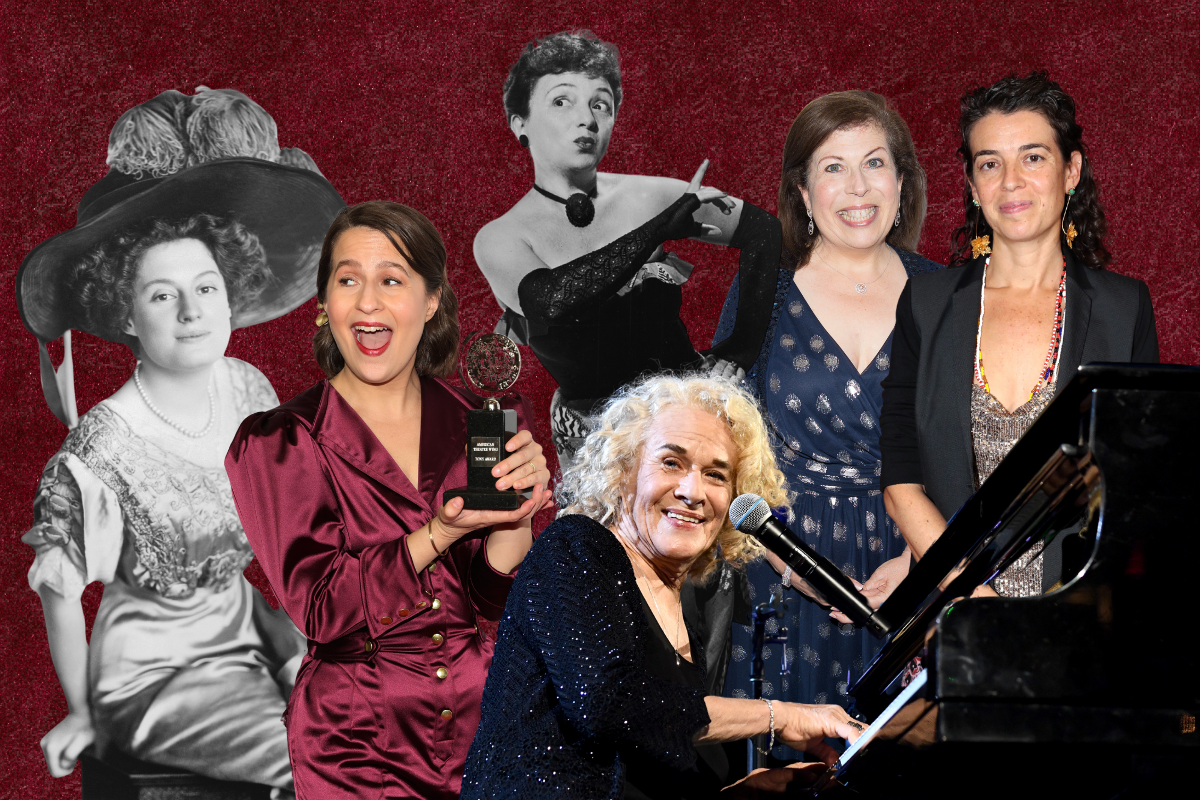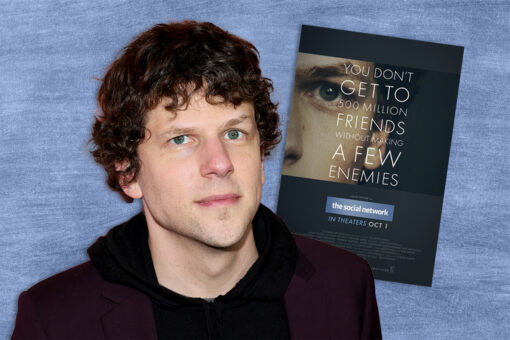Who is left out of history books and why?
That question is one of the driving forces behind Jennifer Ashley Tepper’s new book, “Women Writing Musicals: The Legacy that the History Books Left Out,” which came out on Nov. 19. This is the very first book to focus exclusively on women musical theater writers, but that’s not surprising for Tepper, who seems to enjoy blazing trails. A theater historian and producer (who had two Broadway producing credits to her name by her early 30s), Tepper is a proud Jewish woman who featured 50 Jewish women among the 300 musical theater writers profiled in her book.
She finds it particularly meaningful to be able to highlight the accomplishments of so many talented Jewish women at this moment in time. “Because of the growing antisemitism in our world, there is this understandable instinct to bypass Judaism in terms of how it might intersect with art,” Tepper acknowledged. “But I’m reminded of all of these women who, in other times of adversity, including rising antisemitism, were proudly Jewish. I think that we can look to them now for the same reasons.”
Tepper points to Nora Bayes as a prime example. Chances are that you’ve never heard of Nora Bayes, though Tepper describes her as “one of the top pop stars” of the early 20th century and Vanity Fair gave her a nice shoutout in a video that also included Beyonce and Rhianna. The daughter of a Polish immigrant, Bayes was actually born Rachel Goldberg; even though she changed her name, she retained pride in her Jewish identity throughout her career.
“That’s very parallel to a lot of the stories we hear about male Jewish immigrants who had this significant place in the Great American Songbook and on Broadway in the early 20th century,” noted Tepper, referencing luminaries like Irving Berlin (born Israel Beilin) and George Gershwin (born Jacob Gershowitz).
Bayes imbued her acts with Jewish humor, whether performing in vaudeville, entertaining troops overseas during WWI or writing songs for the acclaimed “Ziegfeld Follies.” “At a time when antisemitism in Europe was causing a mass influx of Jewish immigrants to settle in America, Bayes was an entertainer who signaled that anything was possible for Jews in America,” Tepper said.
It’s noteworthy that Bayes was a performer as well as a writer. In an age of overt sexism, performing was a way for women to get a seat at the table. Another iconic Jewish performer-turned-writer featured in Tepper’s book is Molly Picon.
Described by Tepper as the “First Lady of Yiddish Theatre,” Picon is also known for her memorable turn as Yente in the movie version of “Fiddler on the Roof.” Her musical theater writing credits are less likely to be recognized. “As Yiddish theater intersected more with mainstream theater, a lot of those actors found themselves incorporated into the Broadway sphere,” Tepper explained. “Molly Picon contributed lyrics to a few of her Broadway shows because her personality ended up being part of the project.”
Fans of “Fiddler” might be amused to know that the woman they associate with Yente wrote a 1942 musical called “Oy is Dus a Leben!” about legends of Yiddish theater — including Picon herself, of course.
“There are so many women in the book whose names people will recognize from projects outside of musical theater and I think people will be excited to learn that they wrote musicals too,” Tepper shared. Singer-songwriter Carole King, “Sweet Valley High” novelist Francine Pascal, “My So-Called Life” creator Winnie Holzman (better known now for her work on “Wicked” — both the musical and upcoming movie) and “Friends” co-creator Marta Kauffman all come to mind.
“For a lot of these Jewish women, their Judaism is really explicit in their work. But then, there are women like Marta Kauffman whose Judaism clearly intersects with her writings in a less explicit way,” observed Tepper. “A character might be Jewish, or a sense of Jewish humor might pervade the way she’s writing something, but it’s not necessarily a Jewish topic.”
The book also reveals a compelling shift in the narratives of Jewish women across the 20th century. Much of their writing in the earlier years was influenced by the immigrant experience and the long shadow cast by the pogroms that so many of their families had fled in Eastern Europe. (Tepper cites Tony winners Bella Spewack and Betty Comden as examples.)
Later on, many of the Jewish women writing musicals were sufficiently removed from that trauma and tended to emphasize stories related to social justice. “Visionary and disrupter” Elizabeth Swados tackled societal issues like poverty, abuse, bigotry and violence in shows like “Runaways,” “The Hating Pot” and “The Violence Project.” Perhaps it’s not surprising that she mentored Shaina Taub, whose award-winning musical “Suffs” is currently running on Broadway. Taub was famously inspired by a Talmud quote as she created her show about the women’s movement’s fight for the vote: “You are not obligated to complete the work, but neither are you free to abandon it.”
Tepper doesn’t think that’s coincidental.
“There’s also this Jewish affinity for stories of fighting for the underrepresented, that I think pops up in a lot of these women’s work,” she said.
Tepper is quick to emphasize that not all Jewish writers share a singular set of values, perspectives or even the same experience of Jewish identity.
“There are also a number of women in the book who are multiracial, or are half Jewish,” she stated, mentioning Quiara Alegría Hudes, the Jewish and Puerto-Rican bookwriter of “In the Heights.” “I tried to present every single woman in the book as a complex set of circumstances, opinions and personality traits even if they did overlap in certain ways because of their background.”
That said, Tepper is clear about what her Jewish identity means to her — and even more so after working on this book. “My Judaism is the stories of my family history,” she shared. “By writing about a number of the Jewish women who lived and worked at the same time as my grandparents and great grandparents, I thought about my family: As Jews coming to this country, what songs did they listen to that were written by people profiled in this book? That was a really powerful question to me.”



